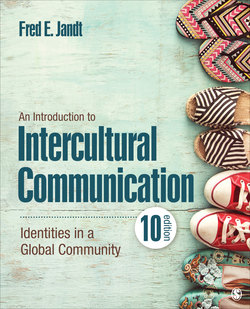Читать книгу An Introduction to Intercultural Communication - Fred E. Jandt - Страница 138
На сайте Литреса книга снята с продажи.
Human Rights and Free Speech
ОглавлениеIn 1989, the death of former Communist Party general secretary Hu Yaobang, whom many considered a political reformer, resulted in the student-led demonstration for democracy in Tiananmen Square in Beijing that June. The army crushed the protest, killing hundreds, perhaps even thousands, on orders believed to have come from Deng (Black & Munro, 1993). Ever since, the Chinese media have blamed the United States for siding with the protesters. Deng, who saw foreign influence in the uprising, dictated that severe measures, such as martial law, would again be taken in the event of future internal turmoil. Only by these means, he felt, would China’s national sovereignty be protected from external interference.
China continues a hard line on dissent. Professor and human rights activist Liu Xiaobo advocated the end of communist single-party rule. He was arrested and tried for “inciting subversion of state power” and sentenced to 11 years of imprisonment and 2 years of deprivation of political rights on December 25, 2009. He was awarded the 2010 Nobel Peace Prize for “his long and non-violent struggle for fundamental human rights in China.” Liu was diagnosed with liver cancer but not permitted to leave China for treatment. He died a prisoner in July 2017. Government censors deleted social media expressions of grief.
Since coming to power in 2012, President Xi Jinping has supported efforts to subjugate both Islam and Christianity to Chinese identity. Authorities have replaced minarets and crosses with Chinese flags.
The Uighurs, a primarily Muslim ethnic group, make up 40% of Xinjiang’s 19 million people. In 2017, veils and “abnormally long” beards were banned. Instruction in the Uighur language was largely prohibited. Mosques were made off-limits to those younger than 18. The United Nations cites “credible reports” that more than 1 million Uighurs have been sent to internment campus and a million more to “re-education” programs.
The United States, which has protested the imprisonment without trial of religious and democracy proponents and the use of prison and child labor in manufacturing, has insisted on human rights improvements in China. The United States has attempted repeatedly, but unsuccessfully, to gain censure for Chinese human rights policies from the United Nations Commission on Human Rights. Prior to the return of Hong Kong to China, the U.S. Congress passed legislation affirming the human rights of the people of Hong Kong. China censored references to communism on closed-circuit television from President Obama’s first inaugural address. In 2016, China issued a new law restricting the work of foreign nongovernmental organizations. The law requires that foreign groups must find an official Chinese partner and register with the police. Former U.S. secretary of state John Kerry issued a statement that the law would “negatively impact … the development of civil society in China.”
China views these demands as attacks on its sovereignty, with the United States acting as a global judge of human rights. China also has charged that the U.S. human rights record includes huge prison populations, low voter turnout, and a history of slavery. Rather than viewing this only as a political clash, some would seek explanations based in cultural values. Chinese leaders place a higher premium on social order and a lesser one on individual expression. China emphasizes collective order, whereas Western cultures stress individual liberties (Wasserstrom, 1991).
